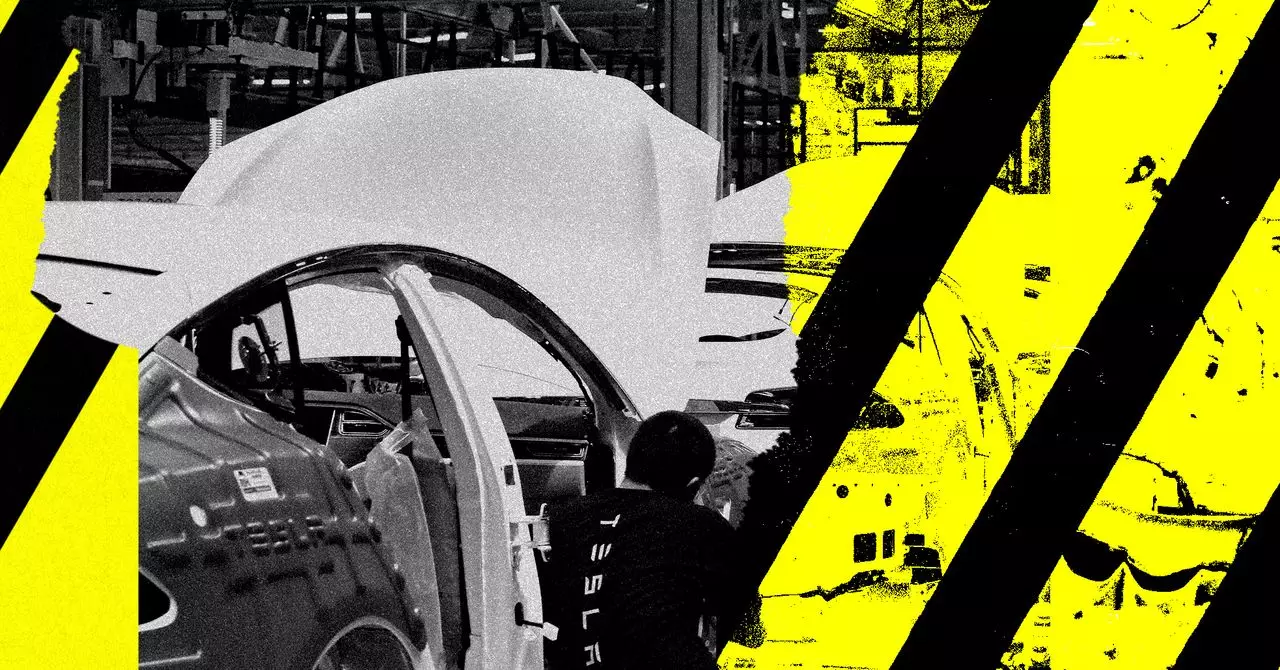In a world increasingly enamored with technological advancement and innovation, companies like Tesla, SpaceX, and The Boring Company are often celebrated as pioneers of modern engineering. However, beneath their glitzy exterior lies a disturbing narrative of safety concerns and tragic accidents that cannot be ignored. A memo from the AFL-CIO has brought to light over two dozen safety issues and accidents reported since 2016, raising serious questions about the prioritization of worker well-being within these organizations. The accounts, some of which have sparked investigations by the Occupational Safety and Health Administration (OSHA), serve as a wake-up call for both employees and consumers alike.
A Grim Catalog of Incidents
Among the incidents cited, the tragic death of licensed electrician Victor Joe Gomez Sr. stands out painfully. Gomez was electrocuted while inspecting electrical panels at Tesla’s Gigafactory in Austin, Texas, a job that OSHA later revealed he was inadequately prepared for because the panels had not been properly disconnected. This case highlights not only the potential human cost of a flippant approach to safety but also illustrates an ongoing pattern where serious concerns are met with resistance rather than immediate action. The fact that this case remains open, with Tesla disputing the allegations, raises further doubts about the company’s commitment to learning from its mistakes.
Other reported incidents are equally alarming. OSHA has issued citations related to fingertip amputations at various Tesla factories, suggesting systemic issues with machinery safety protocols. A more severe incident at SpaceX in 2022 involved an employee who sustained a skull fracture and other critical injuries following what OSHA described as a malfunctioning automated mechanism. Unlike Tesla, SpaceX acknowledged its responsibility in this case, accepting the citation and an $18,475 fine. This distinction spotlights how varying approaches to accountability can either foster a culture of safety or deep-seated denial within corporate structures.
The Silence of Whistleblowers: A Culture of Fear?
The silence surrounding these incidents speaks volumes. Liz Shuler, President of AFL-CIO, has pointed out that numerous Tesla workers have approached the federation to express their fears about a lack of safety. Interestingly, the AFL-CIO collaborates with the United Automobile, Aerospace & Agricultural Implement Workers of America (UAW) but does not officially represent employees at Tesla or SpaceX. This omission might reflect a pervasive climate of fear, where employees may hesitate to voice concerns due to fear of reprisal from management. Whistleblowers, by nature, require anonymity and protection, but the lack of meaningful safety dialogue raises fundamental ethical concerns.
Adding another layer to this worrying narrative is the behavior exhibited by Tesla when challenged by OSHA. With 46 citations issued over the last five years, a staggering 27 remain open due to ongoing disputes, showcasing a strategy that might prioritize legal battles over resolving safety hazards. David Michaels, former assistant secretary of labor for OSHA, notes that large corporations are typically not incentivized to challenge citations, as the fines tend to be relatively small. This begs the question: What motivates a company like Tesla to resist, even when the stakes are lives and injuries?
Money vs. Morality: The Corporate Dilemma
It’s essential to scrutinize the financial calculations that underpin these decisions. Some industry analysts argue that companies operating in high-stakes environments often treat fines not as deterrents but as a cost of doing business. Incredibly, it may sometimes be financially wiser for these corporations to prolong disputes and mitigate immediate responsibility rather than remediate hazards and make safety investments. This phenomenon reveals a troubling paradox in the corporate world: profits are frequently valued over the lives and welfare of employees.
A profound ethical dilemma emerges: Should companies be allowed to prioritize the bottom line over the safety of their workers? As communities increasingly embrace the rapid pace of innovation, the stories emerging from Tesla, SpaceX, and The Boring Company must serve as a crucial reminder that relentless advancement should never come at the expense of human life. The cries for stronger safety protocols and accountability reflect a need for a more humane approach to labor relations, one that values the wellbeing of individuals over the relentless pursuit of progress.
In the shadow of these troubling incidents, the imperative for change looms large. It calls for a reassessment of safety protocols across the industry and challenges the notion that innovation necessarily outweighs ethical responsibility. The battle for safer workplaces is far from over, and it is high time for a cultural shift that mandates a prioritization of people over profits in our quest for advancement.

